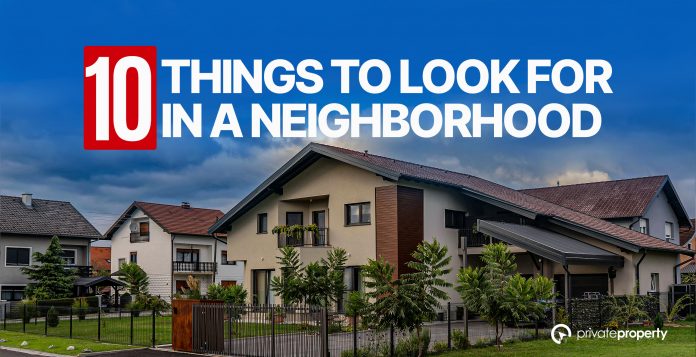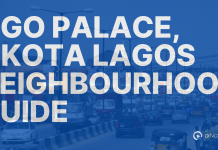When searching for a new place to call home, choosing the right neighborhood is just as important as finding the perfect house. After all, the neighborhood you live in plays a huge role in your overall quality of life. Whether you’re moving to a new city or just across town, it’s important to consider various factors to ensure you end up in a community that suits your lifestyle, values, and long-term goals.
In this blog post, we’ll explore 10 key things to look for in a neighborhood, helping you make an informed decision and find a place that truly feels like home.
What is a good neighborhood?
A good neighborhood is one that meets your personal needs, preferences, and lifestyle while fostering a sense of community, safety, and comfort. What makes a neighborhood “good” can vary from person to person.
10 Things to Look for in a Neighborhood
When searching for the perfect neighborhood, several factors can significantly impact your comfort, convenience, and happiness. Here are 10 key things to look for in a neighborhood:
1. Safety
The safety of a neighborhood is a top priority. Check crime rates, talk to locals, and assess whether the area feels secure, both during the day and at night.
Safety is a critical factor when considering any neighborhood, and in Nigeria, it’s essential to pay extra attention to this aspect due to regional variations in security conditions. Nigerian neighborhoods can differ greatly in terms of safety, influenced by factors such as the level of urban development, economic stability, and community vigilance.
2. Proximity to Work and Schools
Consider the commute to work or access to quality schools if you have children. A shorter commute can improve work-life balance, and good schools add value to your home and future.
Proximity to work and schools is a key factor when choosing a neighborhood, as it directly impacts your daily routine, convenience, and overall quality of life. Living close to work or reputable schools can make a huge difference in Nigeria, where traffic congestion and long commutes can significantly affect productivity and well-being.
3. Local Amenities
Look for nearby essentials like grocery stores, pharmacies, banks, and shopping centers. Being close to amenities can make daily life easier and more convenient.
Local amenities play a crucial role in determining the convenience and overall livability of a neighborhood. Access to essential services and leisure facilities can make daily life easier, reduce commuting time, and add to the enjoyment of your surroundings.
4. Access to Green Spaces
Parks, walking trails, and playgrounds enhance the livability of a neighborhood, providing outdoor spaces for relaxation, exercise, and family activities.
Access to green spaces is a vital aspect of neighborhood livability, offering numerous benefits that enhance mental and physical well-being. In Nigeria, where urbanization has rapidly expanded, finding a neighborhood with ample green spaces can be a key factor in improving your quality of life. Green spaces—such as parks, gardens, recreational areas, and nature reserves—offer a retreat from the hustle and bustle of daily life, providing opportunities for relaxation, exercise, and socializing.
5. Public Transportation
Public transportation is a key factor to consider when choosing a neighborhood, particularly in countries like Nigeria, where traffic congestion and infrastructure challenges can significantly impact daily commutes. Having access to reliable and efficient public transit options can make life easier, reduce travel costs, and offer more flexibility in terms of movement. Whether you’re living in a bustling city like Lagos or a quieter town, proximity to good public transportation is essential for convenience and cost-effectiveness.
Reliable public transit can be a huge benefit, especially if you prefer not to drive everywhere. Easy access to buses, trains, or bike lanes makes commuting easier and more eco-friendly.
6. Neighborhood Aesthetics
The overall appearance and upkeep of the neighborhood matter. Tree-lined streets, well-maintained homes, and clean public areas can enhance the beauty and pride of the community.
Neighborhood aesthetics refer to the overall visual appeal, design, and atmosphere of a community. The aesthetics of a neighborhood go beyond just the appearance of homes—they include elements like cleanliness, green spaces, architectural style, and how well-maintained the surroundings are. When choosing a neighborhood, its aesthetics play a crucial role in creating a pleasant, welcoming environment that can enhance your sense of comfort and belonging.
7. Sense of Community
A strong community atmosphere, where neighbors interact, organize events, or look out for each other, can create a welcoming and supportive environment.
A strong sense of community is one of the most enriching aspects of living in a good neighborhood. It refers to the connections, interactions, and shared values among residents, creating a supportive and welcoming environment. A neighborhood with a vibrant sense of community can greatly enhance your quality of life, offering a sense of belonging, safety, and mutual care.
8. Future Development
Consider any future developments or zoning plans for the area. While growth can improve property values, large-scale projects might affect noise levels, traffic, or the neighborhood’s character.
9. Cultural and Entertainment Options
Proximity to restaurants, cafes, theaters, or cultural centers can enhance your lifestyle. A vibrant local scene offers activities and social opportunities.
10. Affordability
While it’s important to find a neighborhood that suits your lifestyle, it must also fit your budget. Factor in home prices, rent, property taxes, and the cost of living in the area to ensure long-term affordability.
Affordability is a critical consideration when choosing a neighborhood, as it impacts not only your housing costs but also your overall quality of life. In Nigeria, where economic disparities can be significant, understanding the affordability of a neighborhood involves evaluating various factors, including housing prices, cost of living, and potential for long-term financial stability.
In conclusion, finding the right neighborhood involves a comprehensive evaluation of various factors that contribute to your overall quality of life. From safety and access to local amenities to affordability and a strong sense of community, each element plays a significant role in creating an environment where you can thrive. By considering your personal needs and lifestyle preferences, you can make an informed decision that not only meets your immediate requirements but also aligns with your long-term goals.
Whether you’re moving to a bustling city or a quiet suburb, taking the time to explore and assess these aspects will help you discover a neighborhood that feels like home. Ultimately, the right neighborhood can enhance your daily experiences, foster meaningful connections, and provide a foundation for a fulfilling life. So, embark on this journey with a clear vision of what you value most, and you’ll be well on your way to finding the perfect place to call home.









